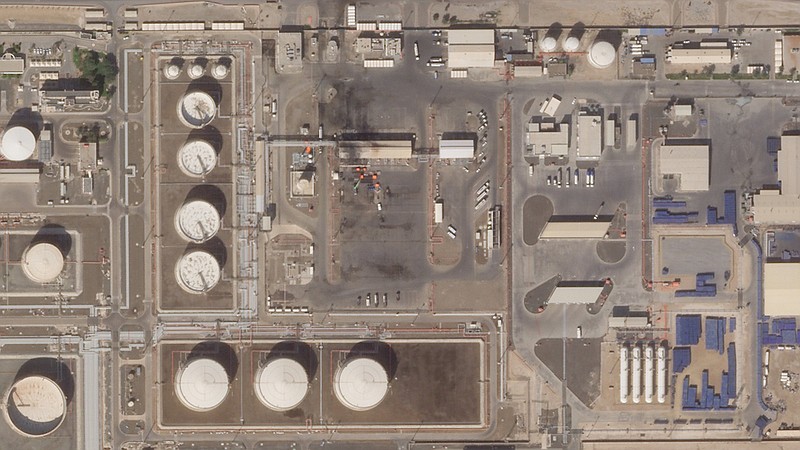DUBAI, United Arab Emirates -- State prosecutors in Abu Dhabi summoned people who shared videos on social media of Emirati defense forces intercepting missiles fired by Yemen's Houthis at the nation's capital, a state-run report said Wednesday.
The move by prosecutors against social media users indicates the destabilizing potential of continued attacks on the United Arab Emirates, even if the missiles are intercepted without injury to residents as happened on Monday.
The UAE's Attorney General Hamad al-Shamsi was quoted by the state-run WAM news agency as saying the distribution of footage from the attack exposes military installations and other vital sites to risk and "may affect the security and stability of society." He said prosecutors would pursue deterrent legal measures against those who publish "legally prohibited" material.
He warned against both "publishing and circulating such material on social media websites." It was not immediately clear whether journalists in the UAE who might film such an incident and social media users who provide accredited media outlets with such footage for news distribution would face similar penalties.
Al-Shamsi did not disclose how many people were summoned nor provide any details on what consequences they might face.
Earlier this month, the UAE enacted a new cybercrime law that rights groups say is worryingly restrictive and enables the targeting of people who post information online that contravenes the official state line.
Al-Shamsi stressed that rumors negatively impact the nation and could amount to "societal peace being threatened and fear and panic being whipped up."
Multiple videos appeared early Monday on social media sites showing the sky over Abu Dhabi light up before dawn. It appeared to be interceptor missiles racing into the clouds to target the incoming fire. Two explosions later thundered through the city.
The videos corresponded to known features of Abu Dhabi.
It was the second attack in a week to target the UAE's oil-rich capital, sending shock waves among the country's residents and tourists.
New rules issued over the weekend now prohibit the flying of drones in the UAE. Emirati prosecutors say anyone who flies drones could face jail or a hefty fine.
Prosecutors have not said which law may have been violated by the summoned social media users, however rights activists and others have been prosecuted under the country's vaguely worded cybercrime law, enacted amid the region's Arab Spring revolts.
More than a dozen rights groups this week expressed their concern in a joint statement over the country's new law on combatting rumors and cybercrime, which replaced the earlier law.
The groups, which include MENA Rights Group, DAWN and Reporters without Borders, said the law further restricts online speech and imposes a prison sentence on anyone who uses the internet to share, document or report information that could harm the state's interests, reputation or prestige. It also criminalizes spreading rumors and fake news.
The rights groups said the law's broad language enables Emirati authorities to impose a fine of up to about $2.73 million on any individual who uses the internet or an electronic account to store or share "unlawful content." The 15 rights groups said the new law restricts free speech in the UAE by defining "unlawful content" as content that intends to harm the state's national security or any of its interests and decrease public confidence in authorities.
